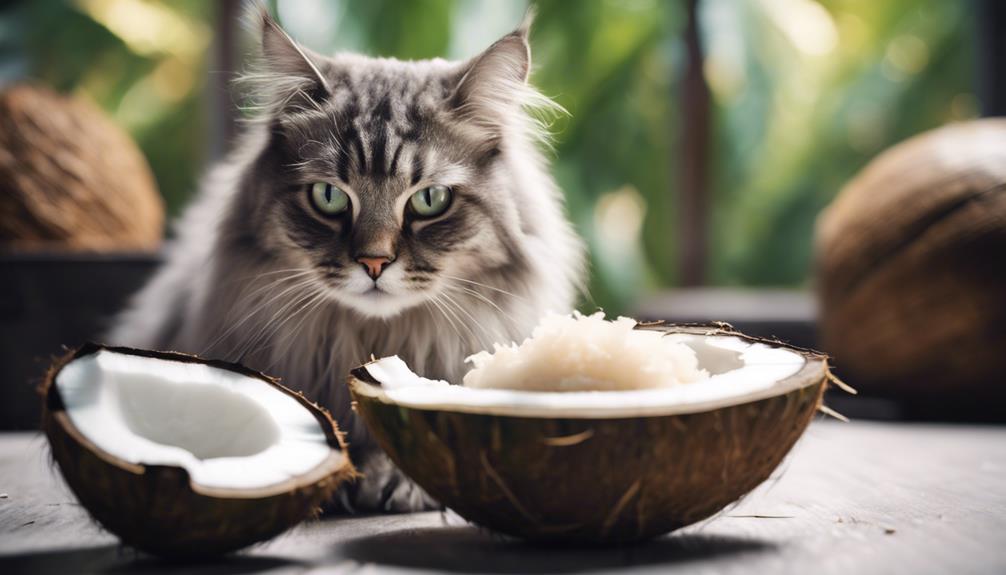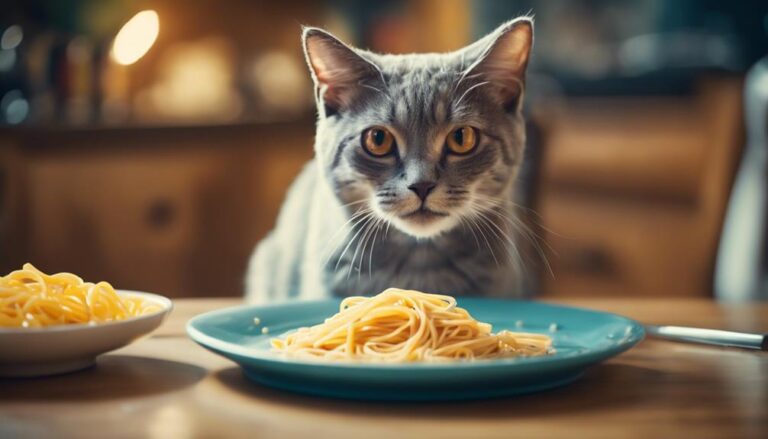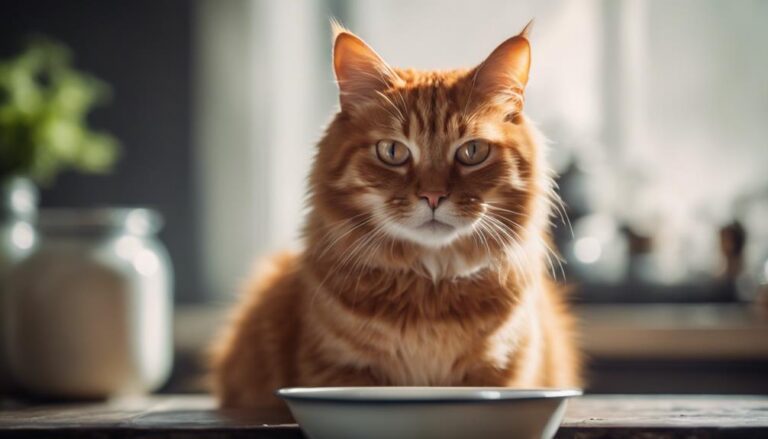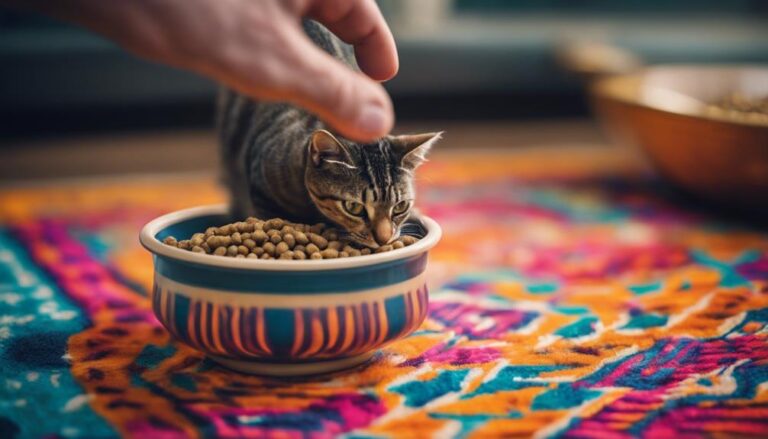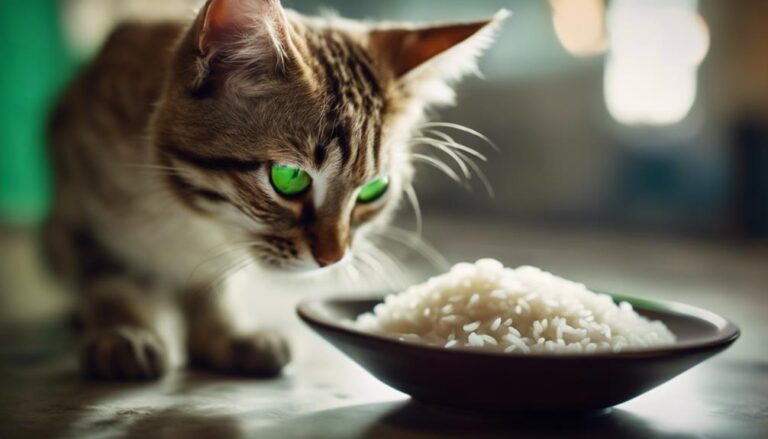If you've ever wondered about the potential benefits and risks of adding coconut to your feline companion's diet, you're not alone. Cats and coconut may seem like an unlikely pair, but the truth is that this tropical fruit can offer some surprising advantages for your pet. From its nutrient content to different ways of serving it, understanding how coconut fits into a cat's diet can lead to informed decisions regarding their well-being. So, before you make any decisions regarding your cat's diet, consider exploring the intricacies of coconut consumption for our feline friends.
Safety of Coconut for Cats
When considering the safety of coconut for your feline friend, remember that coconut is generally non-toxic to cats. Cats can enjoy coconut in its natural form, but it's important to offer it sparingly. Coconut oil, when given in small quantities, can be beneficial for your cat's fur and skin health. However, it's crucial to consult with your vet before incorporating coconut into your cat's diet to ensure it aligns with their specific dietary needs and overall health.
While coconut is safe for cats, it's essential to be cautious about potential risks such as diarrhea, especially if they aren't accustomed to this treat. Coconut water, although high in potassium, isn't recommended for cats due to potential health issues it may cause. Always monitor your cat's reaction after introducing coconut and make sure they aren't experiencing any adverse effects.
Nutritional Benefits of Coconut
Coconut offers various health benefits for your feline friend. It provides essential energy and protein due to its high healthy fat content. Including coconut in your cat's diet can also support red blood cell production with its iron content and promote overall health through the potent antioxidant selenium.
The high manganese levels in coconut further contribute to your cat's bone and joint health, making it a nutritious addition in moderation.
Health Benefits of Coconut
Indulging your feline friend with coconut can introduce a range of health benefits, thanks to its rich composition of essential nutrients like potassium, manganese, copper, iron, and zinc. Here are some health benefits of coconut for your cat:
- Medium-Chain Triglycerides (MCTs): Coconut is rich in MCTs, which can benefit your cat's health.
- Potassium: Essential for overall bodily function and heart health.
- Manganese: Promotes bone and joint health in felines.
- Antioxidants: Coconut meat offers a natural source of antioxidants, supporting your cat's immune system and overall well-being.
Coconut for Cat's Diet
Including coconut in your cat's diet provides a range of nutritional benefits due to its high content of essential nutrients like healthy fats, iron, selenium, and manganese.
Coconut meat is rich in healthy fats, offering vital energy and protein for your cat. The iron present in coconut supports red blood cell production, contributing to your cat's overall health.
Additionally, the selenium found in coconut acts as a powerful antioxidant, which can benefit your cat's well-being. Moreover, the high manganese content in coconut promotes bone and joint health in cats, ensuring their skeletal system remains strong.
Coconut Oil Benefits
Transitioning from discussing the benefits of including coconut in your cat's diet, exploring the nutritional advantages of coconut oil reveals a range of health benefits for your feline friend. Here are some reasons why coconut oil can be beneficial for your cat's health:
- MCTs: The medium-chain triglycerides in coconut oil offer various health benefits for your cat.
- Improved Coat: Coconut oil can aid in digestion, improve your cat's coat condition, and act as a potent antioxidant.
- Anti-inflammatory: The anti-inflammatory properties of coconut oil can benefit cats with skin conditions.
- Antibacterial: Coconut oil's antibacterial properties can help maintain your cat's skin health.
Incorporating coconut oil in moderation can provide your cat with significant nutritional advantages, especially for their skin and coat.
Types of Coconut Products for Cats
You can give your cat coconut oil to promote healthy skin and fur.
However, avoid feeding them coconut water due to its high potassium levels.
Consider offering coconut meat as a nutritious snack for your feline friend.
Coconut Oil Benefits
When selecting coconut products for your cat, opt for cold-pressed or virgin coconut oil to potentially enhance their skin and fur health. Here are some benefits of using coconut oil for your feline friend:
- Skin Health: Coconut oil may help improve your cat's skin health, providing moisture and potentially aiding in conditions like dryness or itchiness.
- Fur Health: Regular use of coconut oil could contribute to a shiny and healthy coat for your cat.
- Small Quantities: Ensure you provide coconut oil in small quantities to prevent any digestive issues.
- Adverse Reactions: Introduce coconut oil gradually and keep an eye out for any adverse reactions your cat may have.
Coconut Water Hydration
To ensure your cat's hydration needs are met safely, it's vital to understand the types of coconut products that are suitable for them. While coconut water is popular among humans for its hydrating properties, it isn't recommended for cats. Coconut water, found in immature green coconuts, contains high levels of potassium, which can be harmful to cats and potentially lead to hyperkalemia, a serious health condition.
Due to the health risks associated with potassium levels in coconut water for cats, it's best to avoid offering it to your feline friend. Opt for fresh water as the primary source of hydration for your cat to ensure their well-being and prevent any potential health issues.
Coconut Flesh Digestibility
Coconut flesh, in its shredded form, offers essential nutrients beneficial for cats' health when fed in moderation. Here are some key points to consider about shredded coconut meat for your feline friend:
- Nutrient-Rich: Shredded coconut meat provides essential nutrients for cats, including healthy fats, protein, iron, selenium, and manganese.
- Moderation is Key: Due to its high-fat content, it's important to feed coconut meat to cats in moderation to prevent weight gain.
- Healthy Fats: Coconut meat contains healthy fats that can benefit your cat's overall well-being when consumed in appropriate amounts.
- Safe Feeding: Ensure the coconut meat is pure and free from additives or sweeteners to guarantee safe consumption and optimal digestibility for your cat.
Serving Coconut to Cats
For cats, introducing fresh coconut meat into their diet can be a delightful and healthy occasional treat. When feeding coconut to your cat, remember to offer it in small amounts to prevent digestive issues and weight gain.
It's essential to consider your cat's health concerns and monitor for any adverse reactions after the introduction of coconut. Opt for virgin or cold-pressed coconut oil for skin and fur health benefits, ensuring the products are free from additives, sugars, and artificial ingredients.
To maintain a balanced diet, feed coconut to your cat once or twice a week. By following these guidelines, you can provide your feline friend with a tasty and nutritious addition to their meals. Remember, moderation is key when it comes to serving coconut to cats, making it a special treat rather than a primary dietary component.
Risks of Feeding Cats Coconut
Feeding cats coconut poses significant risks due to its high fat content, potentially leading to digestive issues and serious health conditions like hepatic lipidosis and pancreatitis. Here are some reasons why coconut can be harmful to your feline friend:
- High Fat Content: Coconut is rich in fat, which can be difficult for cats to digest and may result in gastrointestinal problems.
- Medium-Chain Triglycerides (MCTs): While MCTs can be beneficial in small amounts, the high levels found in coconut can be harmful to cats, causing potential health risks.
- Weight Gain: Regular consumption of coconut can contribute to weight gain in cats, leading to obesity and related health issues.
- Toxicity: Certain components in coconut can be toxic to cats, increasing the likelihood of developing various health problems if consumed regularly.
Considering these risks, it's essential to be cautious when incorporating coconut into your cat's diet to prevent any adverse effects on their well-being.
Consulting a Veterinarian for Coconut Feeding
Before incorporating coconut into your cat's diet, it's crucial to seek guidance from a veterinarian to ensure their well-being and health are prioritized. A vet consultation is essential to address any specific dietary needs your cat may have and to consider their individual sensitivities.
Your veterinarian can provide valuable advice on the safe introduction of coconut to your cat's diet, ensuring it's done in a way that minimizes the risk of health issues. By consulting a vet, you can also receive guidance on the appropriate amount of coconut to feed your cat, helping to prevent potential health issues that may arise from overconsumption.
Furthermore, monitoring your cat for any adverse reactions or digestive problems after introducing coconut is crucial, and a veterinarian can offer professional advice on how to handle such situations. Trusting in your vet's expertise will help you make informed decisions regarding feeding coconut to your feline companion.
Frequently Asked Questions
Is Coconut Safe for Cats to Eat?
Yes, coconut is safe for cats to eat. Introduce it slowly and in small servings to avoid digestive issues. Stick to coconut meat or cold-pressed oil. Avoid coconut water due to its high potassium levels, potentially harmful to felines.
Why Do Cats Love Coconut?
You love coconut because of its sweet smell, crunchy texture, and high-fat content that your instincts crave. Coconut oil's aroma and potential health benefits may entice you. The liquid form and unique flavor of coconut water also appeal to you.
Can Cats Have Pineapple or Coconut?
Yes, cats can have pineapple in moderation as a tasty treat that provides some vitamins. Fresh pineapple is better than canned. Remember to consult your vet before feeding your cat any pineapple or any new food.
Can Cats Have Coconut Cookies?
Avoid giving coconut cookies to your cat. They contain added sugar and potentially harmful ingredients like chocolate or raisins, which are toxic to cats. Stick to their regular cat food and treats for a balanced diet.

